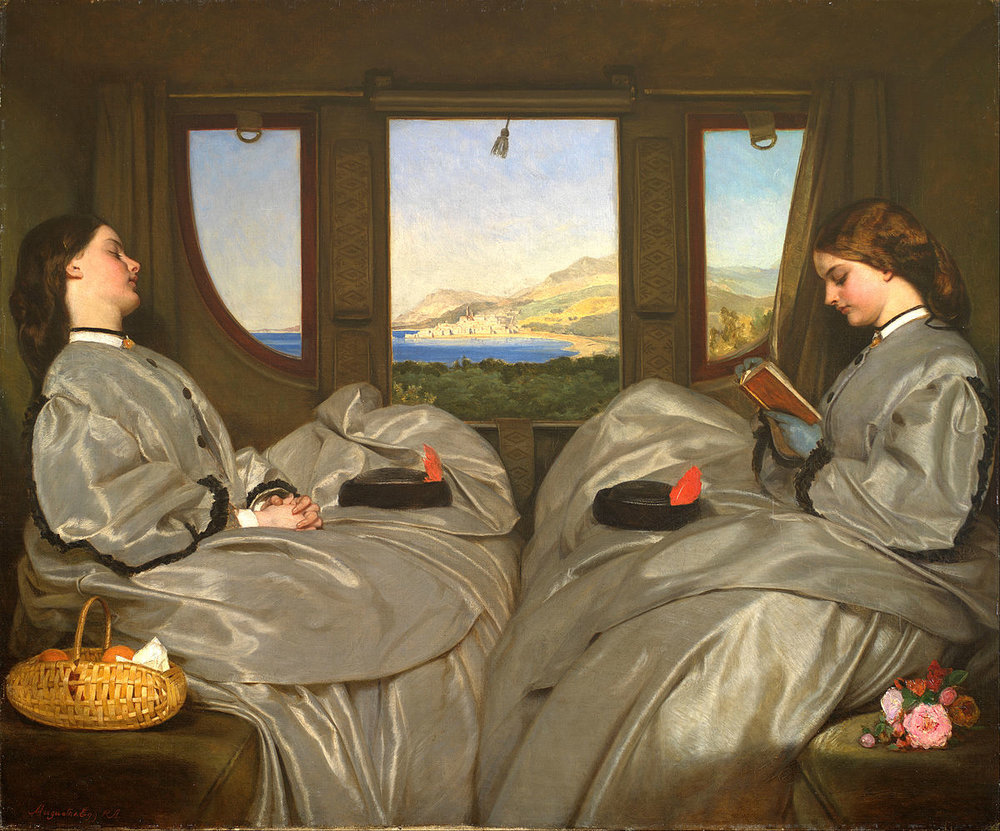
On my desktop (my laptop, not my actual desk) are .jpgs of paintings of women reading books. I dragged them there from the Internet, not quite knowing why I was doing it. But now I realize something in me relaxes when I look at them. The women are all in repose, sitting or lying down. Lost in what they are reading, deep in concentration. They look healthy. When we are that relaxed, we are. In one of my favorites, The Traveling Companions (1862), by Augustus Leopold Egg, two girls who look like sisters and are dressed exactly alike, sit on opposite sides of their train compartment, opposite sides of the composition. There is an almost perfect symmetry between them, their hats resting in their laps in exactly the same manner, their silk dresses which, when they meet in the middle of the compartment, look as if they are different folds of the same piece of cloth. One girl sleeps while the other reads. Each is resting in her own way.
When we read novels or short stories we’re supposed to want tension and conflict, at least that’s what we’re often told, but I don’t care about conflict in fiction any more than the other elements that might appear there. It’s usually narrative voice to which I’m drawn, for the way it sounds, for its particular way of bringing the reader through an experience, for the way it can create atmosphere or feeling. To read relaxation should be boring, for what are we paying attention to when we encounter it? How is it driving the story forward? Something is always supposed to be driving another thing forward in some way. And if we stop for a little while, can that not be interesting too?
I must have first thought consciously about this when I read Sylvia Townsend Warner’s Lolly Willowes. There is so much pleasure in that novel, as Laura, finally at age forty-seven, goes towards her true nature for the first time: she becomes a witch, or she becomes herself as a witch. There is something calming about that, to give up a charade of what one is meant to be, to move to the country, in touch with the supernatural. The passage in the book in which this transformation begins is on page seventy-eight. The book has already showed Laura living one kind of life, in which what she wants she gets only in small doses. She wants nature, and in Apsley Terrace, where she lives with her brother and his family, she surrounds herself with flowers, every winter she fills her room with them, but of course that isn’t enough. It’s a shop...
You have reached your article limit
Sign up for a digital subscription and continue reading all new issues, plus our entire archives, for just $1.50/month.
Already a subscriber? Sign in




